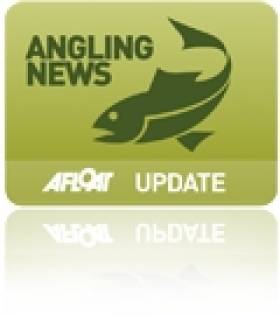Displaying items by tag: Ian Gordon
Hooked Live! Returns to CityWest This Weekend
#ANGLING - Hooked Live!, Ireland’s premier angling and fishing show, is returning to the CityWest Hotel and Lakes this weekend 10-11 March for the third year running.
Spey caster and innovator Ian Gordon is the latest star to join the already confirmed visitor favorites Paul Young, Henry Gilbey, Scott MacKenzie, Andrew Ryan and AGPAI Ireland, who will bring world-class casting demonstrations, talks and personal one-to-one sessions designed to improve and empower visitors to become better anglers.
Bringing the best in Irish angling water sports, with new tackle, venues and angling techniques, Hooked Live! also caters for the fly-fishing enthusiast with fly-tying and casting lessons.
And that's not to mention fly-fishing on our fully stocked lake, where both trout and perch will readily take a fly. Indeed, there are many top prizes to be won in the Lakes Fishing Challenge.
Sea anglers are also catered for and welcome at Hooked Live! and for the coarse fisher, there will be top class exhibits with great tackle and equipment available and a range of venues which will produce results.
Popular seminars will also cover some of the new and successful tackle and techniques which are now being used to catch more fish.
Also returning to Hooked Live! will be the Sporting Gun Show. Taking advantage of the synergy between shooting and fishing, visitors will be able to pick up bargains on end-of-shooting-season stock.
Tickets for Hooked Live! 2012 are priced from just €10 and are available now from tickets.ie. For more details visit the official website at www.hooked.ie





























































